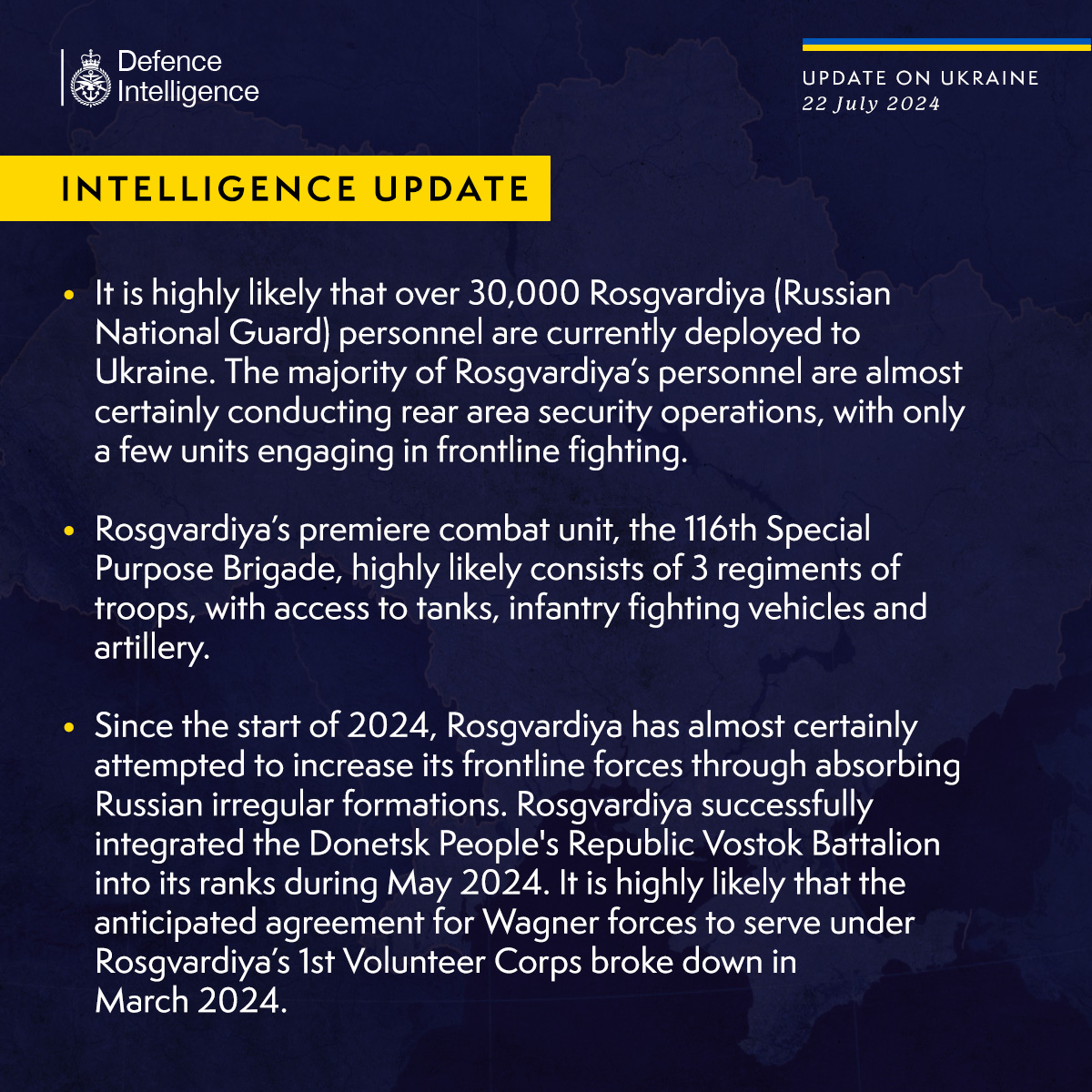
Posted on 02/28/2022 8:10:18 PM PST by Mariner
A Russian military convoy that was outside of Ivankiv, Ukraine, on Sunday has since made it to the outskirts of Kyiv, satellite images show.
On Sunday, the convoy was roughly 40 miles northwest of the Ukrainian capital, according to images provided by Maxar Technologies.
Maxar said that roughly 17 miles of roadway is chocked full of the convoy, which consists of armored vehicles, tanks, towed artillery and other logistical vehicles.
The private US company said the convoy was located on the T-1011 highway at Antonov air base around 11:11 a.m local time.
Antonov is roughly 17 miles from the center of the Ukrainian capital.
(Excerpt) Read more at cnn.com ...
Russian State Duma Chairperson Vyacheslav Volodin recently visited Nicaragua and Cuba, likely as part of ongoing Kremlin efforts to project its influence in the Western hemisphere and rally states against the US and the West. Volodin met with Nicaraguan President Daniel Ortega and Vice President Rosario Murillo in Managua, Nicaragua on July 20 and relayed a message from Russian President Vladimir Putin stating that Russo-Nicaraguan relations are “developing dynamically” and that the two states’ coordination efforts in international affairs are “yielding good results.”[1] Ortega condemned Western sanctions against Russia and reiterated Kremlin narratives claiming that NATO support for Ukraine is aggravating the war. Volodin met with Cuban President Miguel Diaz-Canel in Havana, Cuba on July 21 and relayed a similar message from Putin that Russo-Cuban relations are “developing dynamically.”[2] Diaz-Canel thanked Russia for its support to end the US blockade against Cuba.[3] Volodin told journalists on July 21 that the Russian State Duma will send observers to the Venezuelan presidential election on July 28.[4] Russia has increasingly been trying to demonstrate its influence in the Western hemisphere, including by signing a memorandum of understanding with Venezuela aimed at countering “coercive measures” and conducting naval exercises near and port calls to Cuba and Venezuela in June 2024.[5] Cuba and Nicaragua were also notably among the eight Russian “ally” states that voted against a recent United Nations (UN) General Assembly resolution demanding that Russia withdraw its forces from the occupied Zaporizhzhia Nuclear Power Plant (ZNPP) and return the plant to full Ukrainian control.[6] Cuba, Nicaragua, and Venezuela have recently expressed interest in joining BRICS, and Putin has recently identified BRICS as a pillar of his envisioned “Eurasian security architecture” that is aimed at undermining NATO.[7]
Volodin’s visits to Nicaragua and Cuba immediately followed Belarusian Prime Minister Roman Golovchenko’s visits to Venezuela, Cuba, and Nicaragua, during which Golovchenko signed multiple bilateral economic and trade agreements, possibly as part of Russian schemes that use Belarus to help Russia evade Western sanctions. Golovchenko visited Venezuela from July 14 to 16 and met with Venezuelan officials, including Venezuelan President Nicolas Maduro.[8] Golovchenko stated that his visit aimed to discuss trade and the economic sphere and expressed Belarus’ unwavering support for Maduro.[9] Golovechenko also visited Cuba from July 16 to 17, during which he signed contracts worth “millions of dollars” to supply unspecified Belarusian goods to Cuba in exchange for Cuban exports to Belarus.[10] Golovchenko visited Nicaragua from July 18 to 19 and signed contracts worth $85 million aimed at bilateral economic cooperation, including the Belarusian Development Bank's agreement to finance the delivery of more than 700 pieces of unspecified equipment to Nicaragua.[11] Belarus may provide goods, equipment, or technology to Nicaragua, Venezuela, and Cuba in exchange for goods that Belarus and/or Russia cannot themselves acquire due to Western sanctions.
https://www.understandingwar.org/backgrounder/russian-offensive-campaign-assessment-july-21-2024

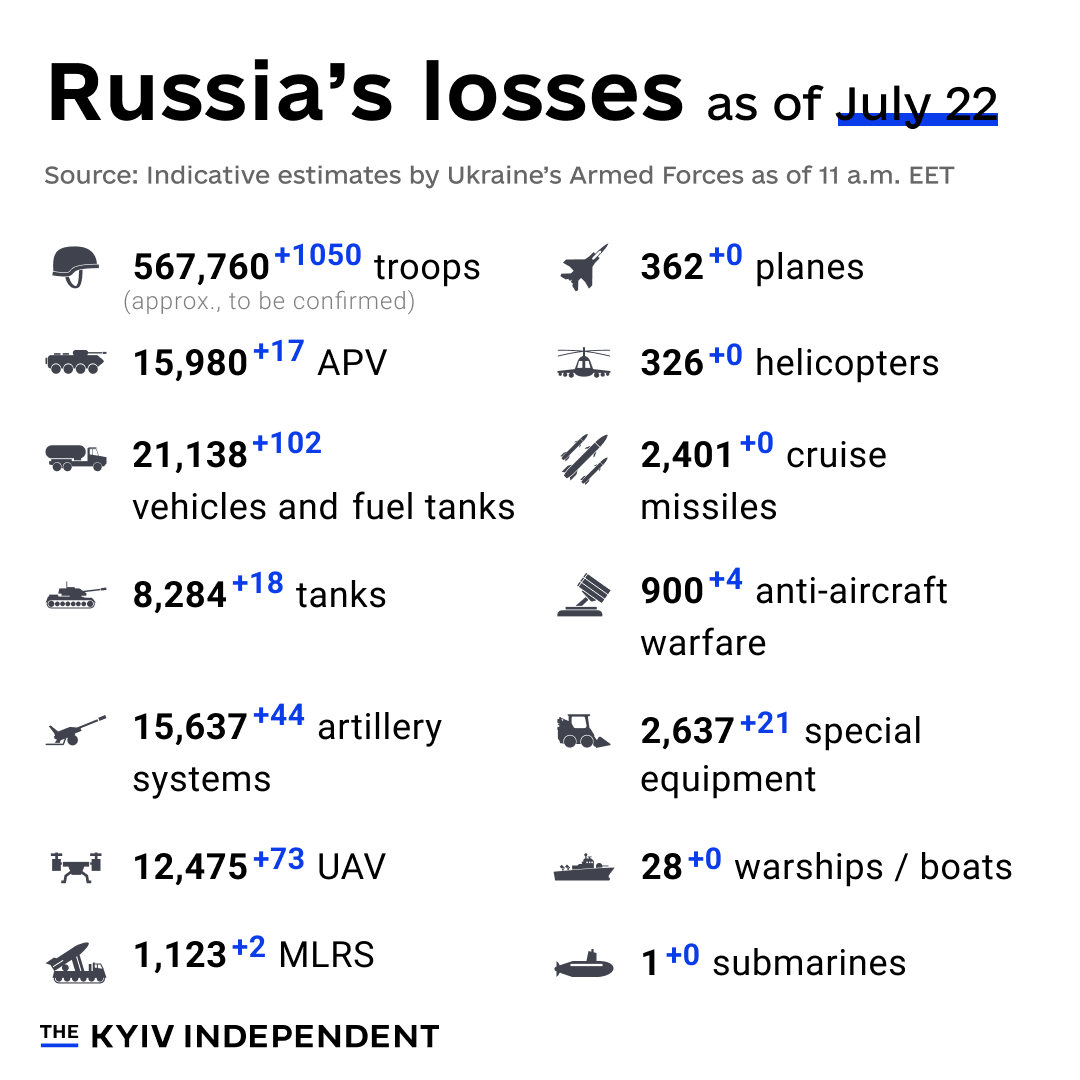
China provides geospatial intelligence to Russia
https://mil.in.ua/en/news/china-provides-geospatial-intelligence-to-russia/
Russia and North Korea are pursuing increased cooperation in the judicial sphere. Russian Prosecutor General Igor Krasnov arrived in Pyongyang, North Korea and met with his North Korean counterpart Kim Chol Won on July 22, marking the first time that a Russian Prosecutor General has visited North Korea.[1] Krasnov and Kim reportedly discussed avenues for continued cooperation and signed an agreement for joint work between the Russian and North Korean prosecutor generals’ offices for 2024–2026.[2] The Russian and North Korean prosecutor general's offices have notably maintained dialogue since 2010 through a separate cooperation agreement, but the new agreement will likely be much more focused in scope, reflecting intensified Russo–North Korean cooperation over the past year.[3] Krasnov emphasized the importance of “establishing a regular exchange of legislative acts” between Russia and North Korea and noted that Russia is ready to share its own experience in developing judicial practice with North Korea while also learning about North Korean judicial practice, particularly in the spheres of communication and information technology.[4]
Both countries have pursued increased military, political, diplomatic, and economic cooperation over the past year, as ISW has reported, but the apparent desire to align judicial and prosecutorial agendas is particularly noteworthy.[5] ISW previously noted that the Russian Prosecutor General's Office weaponizes administrative laws to strengthen the judicial system's control over Russian society, and Krasnov’s recent foreign engagements (including with Iraqi and Central African Republic officials) likely aim in part to share such judicial control and law enforcement tactics with friendly states in exchange for increasing Russia's own arsenal of domestic control methods.[6] Russia's interest in North Korean judicial expertise in communications and information technologies is likely a reflection of the Kremlin's desire to consolidate control over the Russian information space, including via messaging platforms and virtual private network (VPN) services.[7]
https://www.understandingwar.org/backgrounder/russian-offensive-campaign-assessment-july-22-2024
Shoigu wants to return? Rumors circulate among the generals about Belousov’s resignation
Several high-ranking military officials shared this information with us. According to one of them, possible reasons for the resignation could be problems with providing soldiers in several areas of the front, difficulties with preparing for partial demobilization , and a “lack of understanding” of how and, most importantly, when the goals of the SVO will be achieved. The interlocutors also call Vladimir Putin's refusal to dismiss Valery Gerasimov a sign of Belousov’s problems. It is no secret that Belousov would not mind replacing the Chief of the General Staff.
Andrei Removich’s entourage calls rumors about his imminent resignation and claims against him nonsense, as well as “the machinations of Gerasimov and Shoigu, who wants to return to the post of Minister of Defense.” It is worth noting that Putin did not say anything about his intentions to dismiss Belousov either. At the same time, some of our sources in the Kremlin confirmed that they had heard rumors about a possible change of the Minister of Defense.
Grocery stores in Russia are short of almost 10,000 employees, a third of them in Moscow and the region. And the shortage of drivers has led to the downtime of 10% of commercial vehicles, Kommersant writes. The biggest shortage is of sales consultants, cashiers and packers. According to Head Hunter, these positions account for more than half of the vacancies, and it is not easy to fill them: previously, employees could be found in two weeks, but now it takes at least a month
When you send them to war...
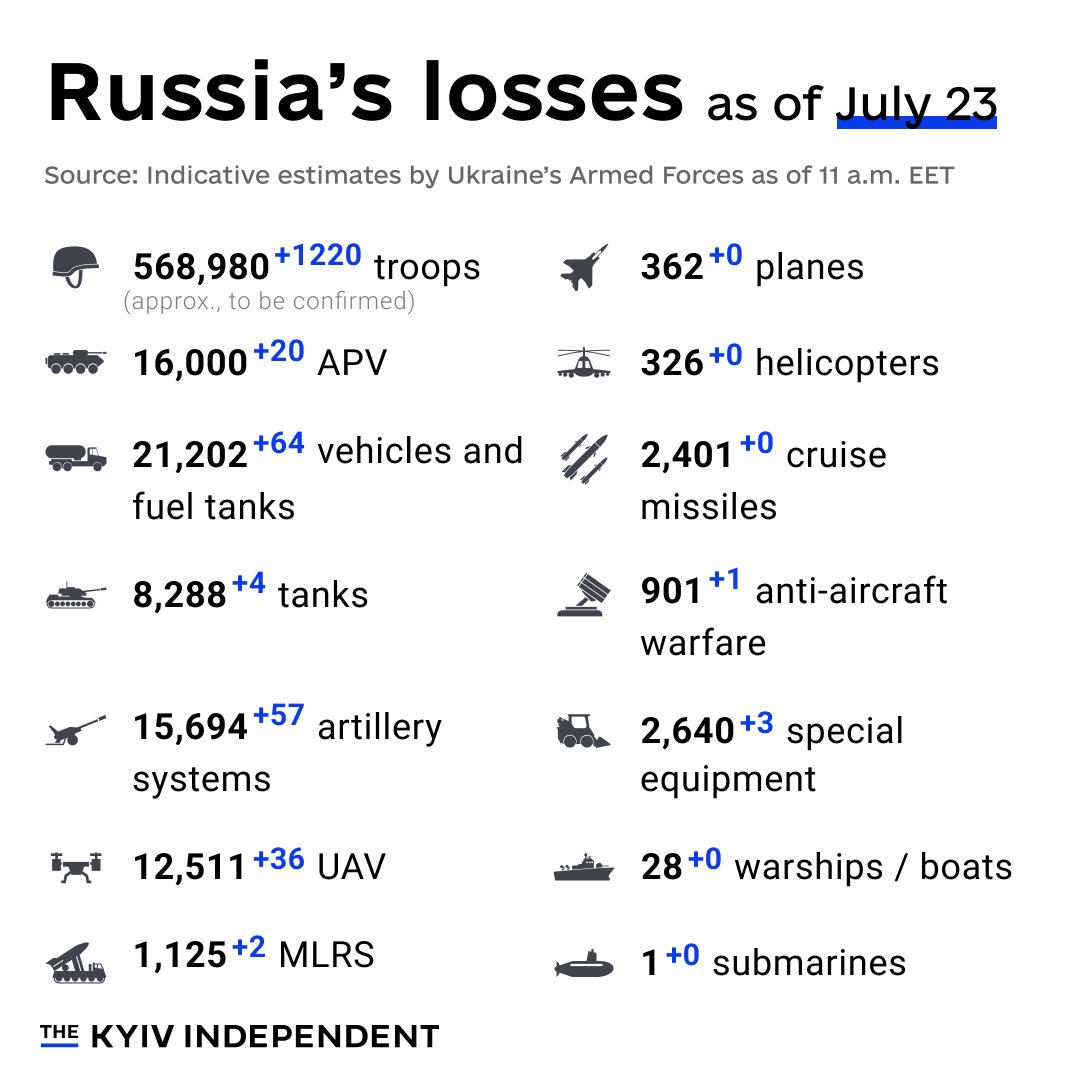
16000 APVs is a nice round number. All those rust buckets littering the Ukrainian countryside adds to the environmental carnage that Putin brought to the world’s best black soil areas. He coveted Ukraine’s petro chemical resources and he also wanted the areas of intensive cultivation. His artillery, mines, and his wrecked vehicles have damaged the goods he hoped to steal.
In the beginning, when the Kremlin thought they would defeat Ukraine, they did not bomb the infrastructure, but now, when even the most die-hard Putin supporter realizes that it will not happen, they destroy everything they can.
Russian Offensive Campaign Assessment, July 23, 2024
The Russian State Duma proposed an amendment that would allow commanders to punish subordinates for using personal communications and navigation devices at the frontline, prompting significant milblogger backlash and highlighting how Russian forces continue to struggle with command and control (C2) issues and overreliance on insecure technologies to conduct combat operations in Ukraine. The Russian State Duma Defense Committee announced its support on July 23 for an amendment that will make wearing “gadgets” (personal phones and electronic devices) in the combat zone a “gross disciplinary offense” and will allow Russian commanders to arrest servicemembers in violation of such offenses without a court order and detain violating servicemembers for up to 10 days.[1] Russian State Duma Defense Committee Chairman Andrei Kartapolov claimed that punishments would not be applicable to servicemembers using devices for combat operations and noted that the amendment is based on a previous bill that generally banned the use of private devices in Ukraine.[2] Kartapolov claimed that the main goal of this amendment is to protect Russian servicemembers against security risks associated with improper cell phone usage.[3]
Russian milbloggers widely criticized this amendment and claimed that punishing soldiers for using personal devices will significantly complicate Russian logistics, C2, and operations in general. Russian milbloggers claimed that Russian servicemembers significantly rely on their personal devices to transmit target coordinates to call for fire from Russian artillerymen and drone operators, to navigate frontline areas, and to coordinate between units.[4] A prominent Russian milblogger published a formal appeal to Kartapolov and claimed that the amendment would result in the “paralysis” of the Russian military’s C2 bodies and called on the Russian Duma Defense Committee to amend the bill to cohere more realistically with how Russian forces use personal devices in Ukraine.[5] Several Russian milbloggers called on the Russian government to provide secure communications and navigation devices to Russian servicemembers before instituting punishment for the ad hoc use of personal devices and criticized Russian Duma deputies for being out of touch with frontline realities.[6] Russian milbloggers also called on Duma deputies to work with the Russian Armed Forces on the proposed amendments and future legislation in order to ensure that laws are in accordance with frontline realities and urged deputies to visit the frontline in Ukraine.[7] One critical Russian milblogger accused Kartapolov and his team of committing treason and pursuing this policy in order to help Ukraine win the war.[8]
It remains unclear if the Russian military command will be able or willing to enforce punishment for the use of personal devices in Ukraine, however, emphasizing the Russian military’s high level of dependency on insecure communications systems. Russian milbloggers questioned how Russian officials intend to differentiate between devices that are and are not used for combat operations and sarcastically noted that Russian officials may intend to implement a complicated (and likely ineffective or unenforceable) bureaucratic system to differential between devices.[9] One Russian milblogger claimed that either the Russian military command will attempt to make commanders enforce the unpopular ban or commanders and their subordinates will pretend to follow the ban while continuing to use their personal devices.[10] Another Russian milblogger complained that the amendment would be another arbitrary rule that commanders can use to justify punishing careless conscripts or disliked subordinates.[11] The Russian Ministry of Defense (MoD) previously attempted to restrict the use of personal devices in the combat zone in Ukraine following a Ukrainian strike on Russian barracks in Makiivka, Donetsk Oblast (which Ukrainian forces were able to target by tracking Russian cell phone signals) and was met with similar criticism in January 2023.[12] The Russian MoD is unlikely to be significantly more successful at this time given that the MoD has failed to address Russian forces’ dependency on insecure personal devices for communication and navigation and provide secure alternatives. The Russian military will likely find it extremely difficult to remove its dependence on insecure personal devices for a large suite of ordinary frontline tasks.
https://www.understandingwar.org/backgrounder/russian-offensive-campaign-assessment-july-23-2024
Russian blogger
The State Duma confirmed two of our insider stories at once
State Duma deputy Sergei Karginov proposed to the Minister of Internal Affairs Vladimir Kolokoltsev to introduce a system of rewards in the amount of 100 thousand rubles [ab $1,000] for reports on the places of residence of illegal migrants.
Karginov emphasizes that in this way ordinary citizens will not only be able to earn money, but also stop the flow of illegal migrants into Russia. Thus, protecting themselves from possible crimes. In essence, deputy Karginov is talking about paid denunciations , which we wrote about literally the other day.
The second confirmed insider story is that the authorities of our country have taken a clear course to rid the Russian Federation of migrants. Of course, it will not be possible to catch everyone and send them home, but the trend is obvious. Our source in the Ministry of Internal Affairs, by the way, fears that if Kolokoltsev approves Karginov’s idea, it could provoke a real witch hunt. “In Moscow alone, we have millions of migrants. Imagine if we receive real complaints about each one. “It will be a real madhouse,” our interlocutor said.
https://t.me/kremlin_secrets/4413
The labor shortage will increase
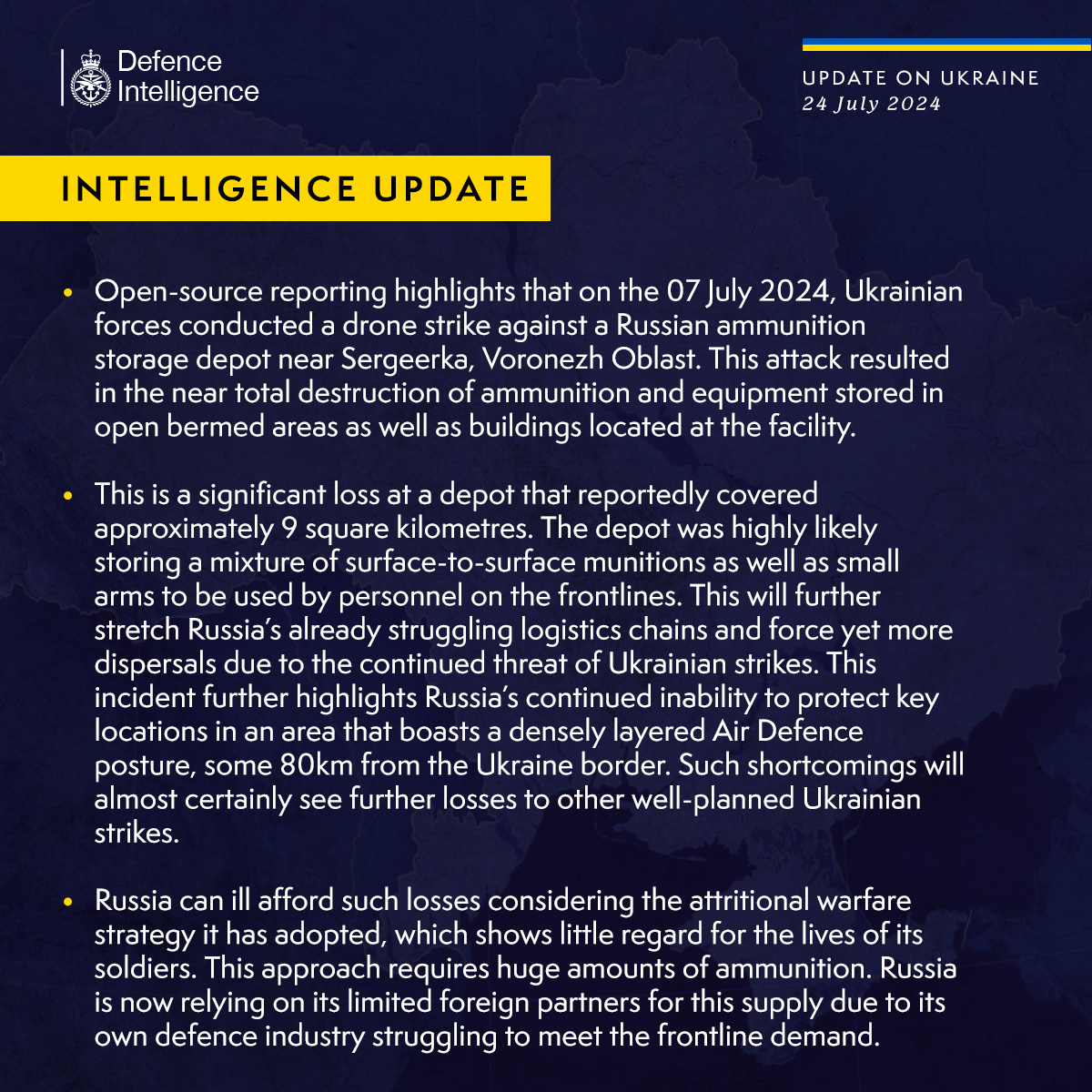
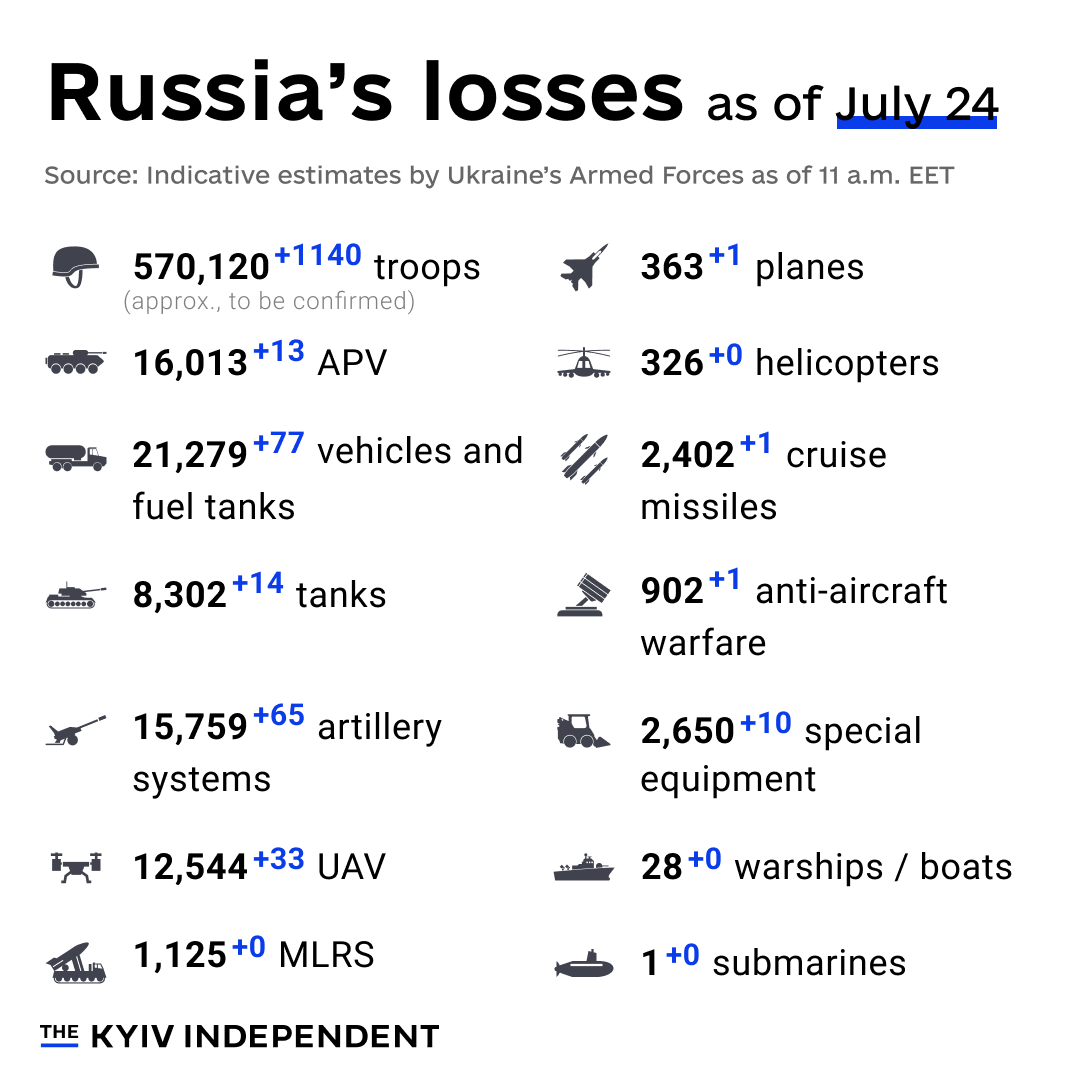
Russian Offensive Campaign Assessment, July 24, 2024
An assassination attempt injured a reported senior Russian military intelligence officer in Moscow City on July 24. Russian officials claimed on July 24 that Russian citizen Yevgeny Serebryakov attached an improvised explosive device (IED) to car at about 0230 local time on July 24 and that the IED detonated at about 0630 local time when a man and his wife started the car, severely injuring them.[29] Russian sources reported that the attack injured Andrey Torgashev, allegedly a senior officer of the Russian Main Military Intelligence Directorate (GRU) who previously served with GRU Unit 45807, a psychological operations unit reportedly directly subordinate to the head of the GRU.[30] Russian sources initially misidentified the victim as another Andrey Torgashev, the Deputy Commander of the 89th Satellite Communications Center (Strategic Missile Forces Central Communications Center), who made a statement to Russian state media that he was not involved or injured in the explosion.[31] Serebryakov fled to Turkey and arrived around 0930 on July 24, upon which Turkish authorities later detained him and are preparing to extradite him to Russia.[32] A Russian court charged Serebryakov with two counts of attempted murder, and Russian media reported that Russian authorities are investigating the involvement of Ukrainian special services in the assassination attempt and that prosecutors may change Serebryakov’s charges to terrorism.[33]
https://www.understandingwar.org/backgrounder/russian-offensive-campaign-assessment-july-24-2024
Atomic Energy Organization of Iran (AEOI) head Mohammad Eslami claimed that Iran had exported nuclear materials and expertise to various unspecified countries in an interview with Supreme Leader Ali Khamenei’s website on July 22.[17] Eslami stated that Iranian nuclear experts had “exported services” to unnamed countries during an unspecified timeframe. Eslami added that an AEOI technical group had travelled to an unspecified Latin American country within the past four months for “consultations” and that Iran was “continuously receiving” similar requests from other countries. Eslami also stated that Iran had exported domestically-produced heavy water—a substance that serves as a moderator and coolant in nuclear reactors—without providing further details. Eslami‘s statements focused on the development and export of Iranian pharmaceutical nuclear capabilities. Khamenei publicly called on the AEOI in June 2023 to commercialize nuclear products—specifically heavy water and nuclear isotopes—and services.[18] Khamenei.ir published Eslami’s interview on a new page titled “A Strong Iran with an Advanced Nuclear Industry,” underscoring the extent to which the supreme leader seeks to promote Iranian indigenous nuclear capabilities.[19]
It is unclear to what extent Iran has previously provided nuclear expertise to other actors, although Iranian officials have previously expressed their readiness to do so. Eslami stressed Iran's willingness to help Saudi Arabia develop its nuclear program in May 2024.[20] Iran sold heavy water to the US in 2016 as part of the Joint Comprehensive Plan of Action.[21] Iranian officials have since claimed that the US purchased and requested the purchase of Iranian heavy water in recent years.[22] One Iranian official stated that Iran discussed heavy waters sales with Russia in 2016, although it is unclear if these discussions resulted in the purchase of such materials.[23]
https://www.understandingwar.org/backgrounder/iran-update-july-25-2024
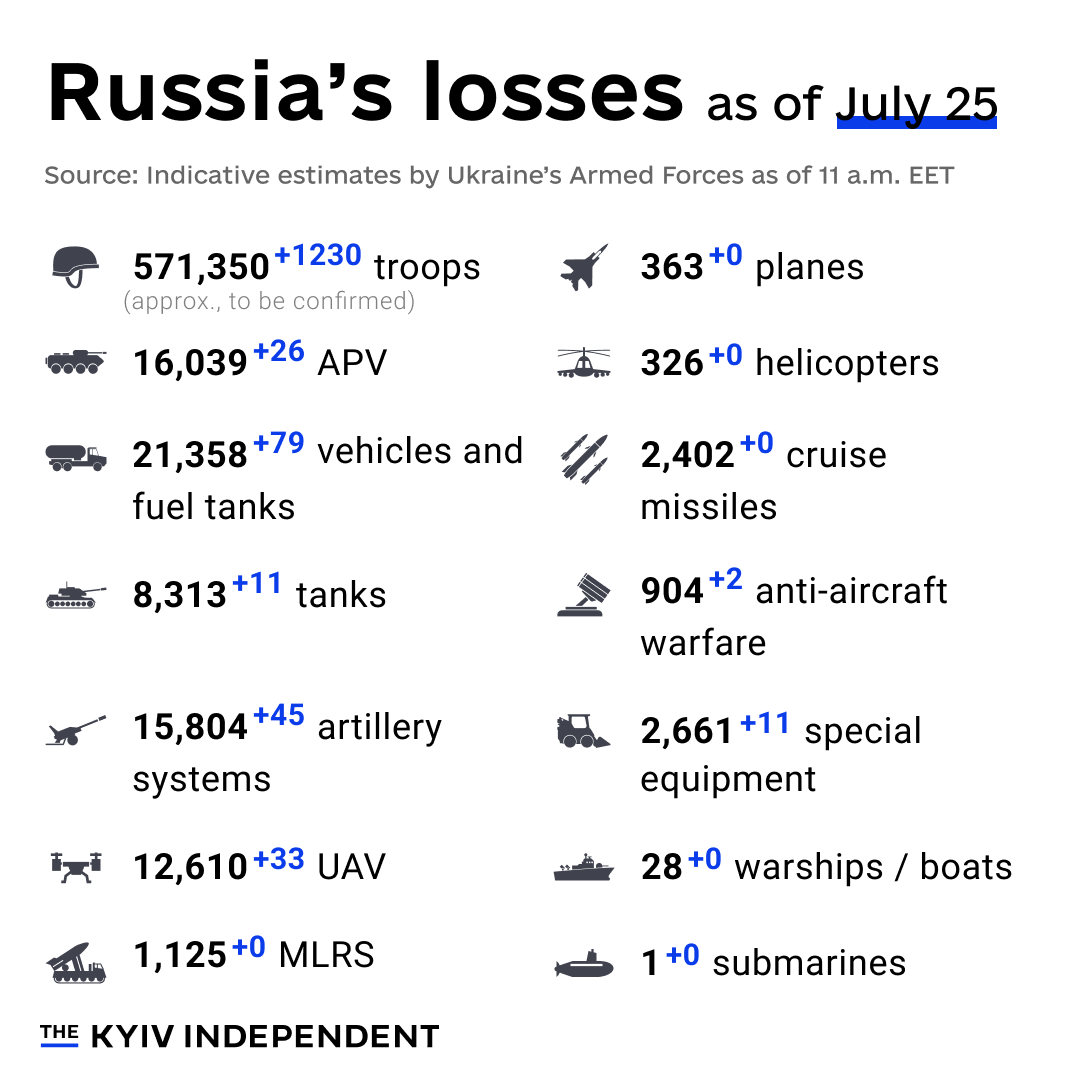
The second Aurus, presented by Putin to Kim Jong-un, also broke down
Incredible bad luck. Three weeks ago, we learned that the engine cooling system of the Aurus, which was presented to the leader of North Korea Kim Jong-un during Vladimir Putin's visit to the country, had failed.
This time, information was received that there are problems with the second car, which was presented by the Russian president to his North Korean counterpart in February of this year. They say that the air conditioner malfunctioned. And this allegedly greatly upset Kim Jong-un.
Here it would be worth recalling the president's plans to transfer our officials to domestic cars. Perhaps, when they drive Russian-made cars, quality problems will arise less often.
Russia Is Returning Ukrainian POW’s Bodies Without Internal Organs
The return of POW bodies without internal organs is not just a humanitarian issue but constitutes a war crime under international law. The act of removing organs from POWs violates the Geneva Conventions, which protect the dignity and rights of prisoners of war. Such actions, if confirmed, could be subject to international prosecution and sanctions.
Disclaimer: Opinions posted on Free Republic are those of the individual posters and do not necessarily represent the opinion of Free Republic or its management. All materials posted herein are protected by copyright law and the exemption for fair use of copyrighted works.